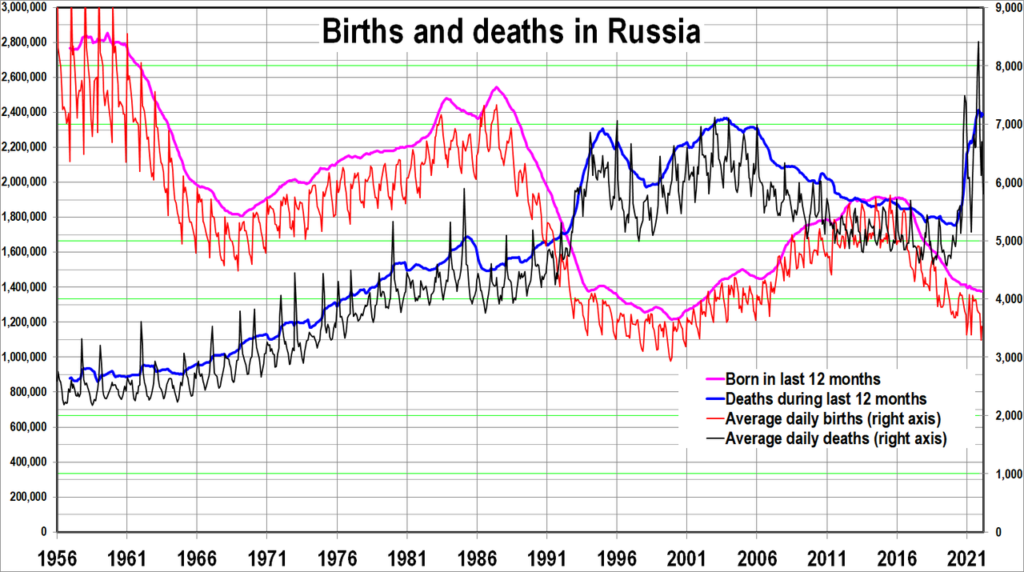(I’m aware others have made the same US defeats Germany point before this. Just becoming super obvious.)
Basically industries which have high energy costs are being crushed. In particular this means chemical and automotive, both big in Germany, but extends far further.
(Indeed, the chemical industry was essentially invented by Germany in the 19th century, and American industry exists because the patents were broken in WWI and not reinstated after the war.)
This has a lot of knock-on effects, not only in price increases (which are big), but shortages. For example:
The coronavirus pandemic showed how easily modern production processes can get out of sync. Supply chains interlock like the insides of a clock, and if one cog fails, the entire machinery can grind to a halt.
An example is a small company from Lutherstadt Wittenberg, Germany, which has made it onto the prime-time news broadcasts in recent days because its products are needed almost everywhere. “Our production has been halted completely,” says Torsten Klett, the co-managing director of SKW Stickstoffwerke Piesteritz. “And we will only be able to restart if the gas price drops significantly or if politicians provide us with massive support.” The chemical company is one of Germany’s largest producers of fertilizers and AdBlue. Natural gas has also become too expensive for SKW. If political help doesn’t arrive soon, the company could be forced to send its 860 employees into a work furlough program in October.
Few modern diesel engines can be operated without AdBlue – not those of the fire department, not those used in public transportation and, above all, not the 800,000 or so trucks that transport goods of all kinds across Germany’s roads every day. Should companies no longer receive the products they need for their own production, the result wold be devastating, and almost all sectors would be affected.
The national association representing the logistics industry has begun warning of potential bottlenecks, even though AdBlue is also manufactured by BASF and the Norwegian firm Yara. But BASF began cutting back on ammonia production last year due to increased gas prices. The world’s largest chemical company can still compensate for the shortfall by buying on the world market, though the costs continue to rise.
So, logistics crisis intensifies because of lack AdBlue.
Meanwhile increased energy prices are hammering every single business and homeowner just for electricity, heating and cooling, so much so that it’s causing many retailers to become non-viable. Employment is actually tight (whisper after me “Covid deaths and Long Covid”), so there’s pressure on wages, but prices are increasing faster than wages so consumers don’t want to spend.
Industries that Germany has been powerful in for over a century are being hammered.
Now a lot of Europeans hate Germany, and with good reason. The Euro has been less than Germany would have had given its own currency with their level of exports, but higher than it should be for most other European countries, meaning that German industry was subsidized and other nations like Italy and Finland were penalized.
Germany aggressively policed other European countries, making it near impossible for them to protect their industry thru other means like subsidies, generally under the rubric of “fiscal discipline” and when countries were in crisis engaged in a fair bit of looting.
Meanwhile Eastern Europe was never properly integrated into Europe, remaining primarily a source of cheap labour and not properly moving up value chains.
To Eastern Europeans Germany is a traitor who made deals with the evil Russians to keep their energy prices low and didn’t really share the ensuing prosperity. (Germans would mostly disagree, noting the subsidies. But countries want their own prosperity, not welfare.) To Western Europeans Germany has repeatedly abused its economic and political power to keep its industry strong, even as others lost theirs.
So Germany has a lot of power in the EU, but few true friends, and there’s a lot of resentment.
Still, whatever the causes, Germany is the industrial powerhouse of Europe and Europeans who are laughing at Germany’s loss of industry during this energy crisis are being foolish, because what’s happening is that Europe as a whole is becoming weaker.
But the beautiful icing on the cake (if you’re an American oligarch) is:
A big winner from the energy crisis in Europe: the U.S. economy.
Battered by skyrocketing gas prices, companies in Europe that make steel, fertilizer and other feedstocks of economic activity are shifting operations to the U.S., attracted by more stable energy prices and muscular government support.
As wild swings in energy prices and persistent supply-chain troubles threaten Europe with what some economists warn could be a new era of deindustrialization, Washington has unveiled a raft of incentives for manufacturing and green energy. The upshot is a playing field increasingly tilted in the U.S.’s favor, executives say, particularly for companies placing bets on projects to make chemicals, batteries and other energy-intensive products.
“It’s a no-brainer to go and do that in the United States,” said Ahmed El-Hoshy, chief executive of Amsterdam-based chemical firm OCI NV, which this month announced an expansion of an ammonia plant in Texas.
…
Some economists have warned that natural-gas producers from Canada to the U.S. and Qatar may struggle to fully replace Russia as a supplier for Europe in the medium term. If so, the continent could face high prices, at least for gas, well into 2024, threatening to make the scarring on Europe’s manufacturing sector permanent.
It’s not other Europeans who are going to win out of this, everyone’s being hurt to some degree and any gains are relative, not absolute. “Well this hurts the Germans so much more than us” is only a relative win. But it weakens Europe overall: the production mostly isn’t moving to other European countries This is the wrong way to deal with a real problem, in other words, and the right way was political and a rejection of neo-liberalism. But since neo-liberalism is religion to Eurocrats, that wasn’t possible. Dealing with Germany couldn’t be done rationally and sensibly, so instead it has been done stupidly and harmfully, so that no one benefits except the US.
As I have said since the start, anti-Russia sanctions primarily hurt Europe and help America. They make Europe weaker and re-enforce the European political position as American satrapies. Since they do very little harm to Russia, the rational course would have been to continue to buy Russian oil while only putting on targeted sanctions (no military or dual use sales), and spend the next 2-4 years gracefully moving to alternatives in a way that would not deeply damage Germany and Europe’s industrial base and wouldn’t cause a general economic crisis in Europe.
Longer term, my forecast is that Europe as a whole will move to second world status. Their decisions around Ukraine have made that a certainty, since they make it a virtual certainty they will also wind up going along with the US in the cold-war against China. Europe has less and less tech and industry that the world must have: there are other consumers available and they no longer have a military worth worrying about.
Europe’s massive living standard was based technological, industrial and military superiority which is going away. The rise of China ends that: there are now 4+ major industrial/technological powers and Europe isn’t needed. As China climbs the tech chain, there will soon be nothing significant they, or anybody else, must get from Europe (jets may be the last holdout, but even that will not last.)
Mishandling of Ukraine, the war and sanctions is Europe’s decision to go ugly into its twilight.


